Refine search
Actions for selected content:
17 results

2 Peter
-
- Published online:
- 31 October 2025
- Print publication:
- 20 November 2025
Divine Vassal: Ancient Near Eastern Attributes in the Father-Son Imagery of Hosea 11
-
- Journal:
- Harvard Theological Review / Volume 118 / Issue 3 / July 2025
- Published online by Cambridge University Press:
- 22 October 2025, pp. 407-424
- Print publication:
- July 2025
-
- Article
-
- You have access
- Open access
- HTML
- Export citation
2 - One God and the Bible
- from Part I - The Early History of “God is One”
-
- Book:
- The Evolution of Jewish Monotheism
- Published online:
- 20 February 2025
- Print publication:
- 27 February 2025, pp 36-72
-
- Chapter
- Export citation
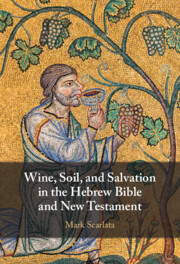
Wine, Soil, and Salvation in the Hebrew Bible and New Testament
-
- Published online:
- 09 January 2025
- Print publication:
- 23 January 2025
From Biblical Semantics to Theology: Divine and Human כעס and קנאה
-
- Journal:
- Harvard Theological Review / Volume 117 / Issue 4 / October 2024
- Published online by Cambridge University Press:
- 31 December 2024, pp. 681-698
- Print publication:
- October 2024
-
- Article
-
- You have access
- Open access
- HTML
- Export citation
3 - Inhabiting the Rule
-
- Book:
- Who Is a True Christian?
- Published online:
- 04 January 2024
- Print publication:
- 22 February 2024, pp 128-175
-
- Chapter
- Export citation
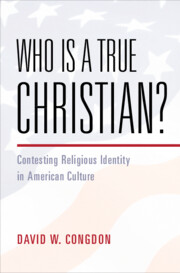
Who Is a True Christian?
- Contesting Religious Identity in American Culture
-
- Published online:
- 04 January 2024
- Print publication:
- 22 February 2024
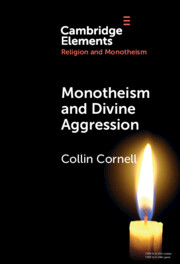
Monotheism and Divine Aggression
-
- Published online:
- 19 December 2023
- Print publication:
- 01 February 2024
-
- Element
- Export citation
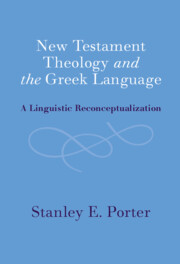
New Testament Theology and the Greek Language
- A Linguistic Reconceptualization
-
- Published online:
- 13 October 2022
- Print publication:
- 20 October 2022
Alan Richardson’s Biblical Theology, ‘Faith Principle’ and Attempts to Protect Public Faith
-
- Journal:
- Journal of Anglican Studies / Volume 21 / Issue 2 / November 2023
- Published online by Cambridge University Press:
- 21 February 2022, pp. 296-312
-
- Article
-
- You have access
- Open access
- HTML
- Export citation
6 - The Christological Subject in the Synoptics and in John
- from Part II - Returning to Scripture
-
- Book:
- The Humility of the Eternal Son
- Published online:
- 19 November 2021
- Print publication:
- 16 September 2021, pp 221-246
-
- Chapter
- Export citation
5 - The Self-Humiliating God in Paul’s Theology (and in Hebrews)
- from Part II - Returning to Scripture
-
- Book:
- The Humility of the Eternal Son
- Published online:
- 19 November 2021
- Print publication:
- 16 September 2021, pp 199-220
-
- Chapter
- Export citation
3 - Jewish Biblical Theology
- from Part I - Biblical-Rabbinic
-
-
- Book:
- The Cambridge Companion to Jewish Theology
- Published online:
- 03 December 2020
- Print publication:
- 17 December 2020, pp 41-59
-
- Chapter
- Export citation
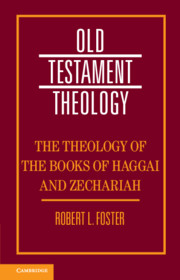
The Theology of the Books of Haggai and Zechariah
-
- Published online:
- 19 October 2020
- Print publication:
- 29 October 2020
33 - The Bible in music
- from Part V - Thematic Overview: Reception and Use of the Bible, 1750–2000
-
-
- Book:
- The New Cambridge History of the Bible
- Published online:
- 09 June 2015
- Print publication:
- 13 April 2015, pp 681-692
-
- Chapter
- Export citation
11 - Liberal readings of the Bible and their conservative responses
- from Part II - New Modes of Study of the Bible
-
-
- Book:
- The New Cambridge History of the Bible
- Published online:
- 09 June 2015
- Print publication:
- 13 April 2015, pp 208-219
-
- Chapter
- Export citation
A Note on Scripture in the Summa theologiae
-
- Journal:
- New Blackfriars / Volume 90 / Issue 1030 / November 2009
- Published online by Cambridge University Press:
- 01 January 2024, pp. 652-658
- Print publication:
- November 2009
-
- Article
- Export citation
